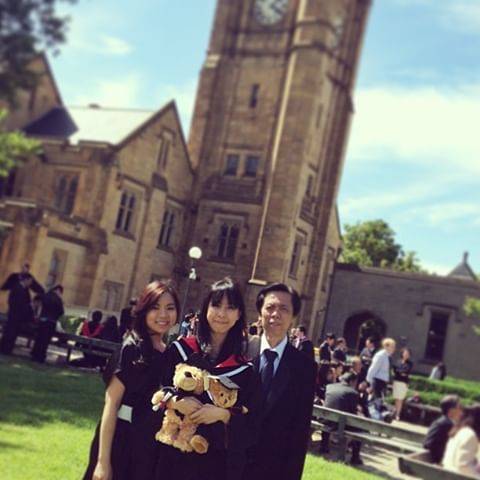沟通之前:希望您能花,三到五分钟的时间,观看我们的视频,对我们的能力,有一个初步判断。
渥太华大学毕业照展示

法国两个研究机构,国家农业研究所(INRA)和巴斯德研究所,正在协调一项为期三年的倡议,以协调欧洲保护和鉴定细菌和微生物的系统。
这项工作预计将由制药、农业食品和卫生工业开发。
EMBARC(欧洲微生物资源中心财团)是由欧洲联盟第七个研究框架方案资助的项目,欧盟委员会资助420万欧元(5美元)。
600万)介于2009和2012之间。
该财团由来自七个国家的10个微生物资源中心组成,专门收集、分析和保存微生物。
除了协调各中心保存和鉴定细菌、病毒和显微真菌等生物样品的方法之外,EMBARC还将建立DNA库并改进DNA保存技术。
它还将探索新的方法来鉴定和分类微生物,这些微生物在学术研究和渥太华大学教学、农业食品和制药工业以及医院等部门都有应用。
EMBARC将向更广泛的研究界提供其资源、设备和专门知识,并提供诸如教育和物种鉴定等服务。
另一个目标是探索潜在的资金来源,包括私人资金,以确保该财团的长期未来。
INRA Rennes和巴斯德研究所将共同负责该网络的科学协调。
致力于表征和促进生物多样性。
促进馆藏的可持续性及其长期融资是EMBARC的主要目标之一。
两个研究所强调微生物馆藏不是博物馆藏品,而是对研究和公共卫生重要的宝贵资源。
一个例子是疫苗的开发,它需要对抗生素前细胞系进行工作,并且需要使用70岁以上的细菌菌株。
马歇尔@ UW-NeWS.com

The insightful recent debate between Professor John Kelly and Professor David Newman about academic freedom (University World News, 26 June 2015) underestimates the magnitude of the current crisis facing the Palestinian education system.
This system lies in shambles as a result of Israeli policies that have systematically undermined the integrity and quality of education in the occupied Palestinian territories, or oPt, and Gaza.
The disintegration of Palestinian educationThe Global Coalition to Protect Education from Attack defines attacks on education as “any intentional threat or use of force – carried out for political, military, ideological, sectarian, ethnic, religious or criminal reasons – against students, teachers and educational institutions”.
Last year, the independent and non-partisan network Al-Shabaka published a report that details the different measures used by the Israelis to carry out their assault on the Palestinian educational system.
These measures include systematic restrictions on the mobility of students and faculty through an elaborate system of permanent and fly checkpoints as well as the 700 kilometre-long segregation wall, hindering their ability to attend schools, colleges and universities and take part in other academic activities in Palestine and around the world.
Needless to say, this is a privilege that is granted to Israeli students without any restrictions.
In addition, these draconian measures include limiting students’ access to education due to arbitrary security considerations; banning Gaza students from attending Palestinian universities in the oPt; denying exit permits to winners of foreign scholarships and fellowships such as Fulbright and Erasmus; the destruction of university property and infrastructure; repeated campus raids, closures and military crackdowns on universities; the conversion of academic institutions into temporary prisons and detention camps; detention, interrogation, torture and murder of students and faculty; and the confiscation of student organisation material.
The magnitude of this systematic attack on Palestinian education is enormous, to the extent that the achievement of the Millennium Development Goals on education in Palestine, as the Palestinian Center for Human Rights asserts, is “currently proving unattainable as a result of the illegal policies enacted as part of Israel’s long-standing occupation”.
The global attack on educationUnderstanding the decline and disintegration of Palestinian education, moreover, cannot be disconnected from the history of the ongoing Nakba – the 1948 Palestinian exodus – under the Israeli apartheid policies and Zionist settler-colonial project.
This fall-out, moreover, has been exacerbated in the context of the predatory encroachment of the global capitalist economy, with the integration of Palestine as a peripheral economic zone through the Israelification of the neoliberal global capitalist system in Palestine by means of the Oslo Accords.
The intention of the concerted Israeli attack is to produce not only docile – de-nationalised – colonial subjects, who are alienated from their national identity, culture and history.
More importantly, it aims at producing an unskilled labour force that can meet the demands and needs of the Israeli labour market and the global market through forcible dislocation and non-voluntary immigration.
Post-Oslo humanitarian politicsNonetheless, no one can dispute the human tragedy in this situation.
Even US President Barack Obama appealed to this human dimension of the Palestinian students’ struggle for the right to education.
Decrying the ferocious blackmail tactics that apologists for the Israeli occupation and apartheid policies use to whitewash the colonial occupation, he bemoaned the fact that any expression of “compassion or empathy towards Palestinian youth, who are dealing with checkpoints or restrictions on their ability to travel” is silenced.
His point is that the hysterical conflation of the legitimate critique of Israeli and Zionist policies with the illegitimate and irrational fear of the Jewish people in the name of anti-Semitism must be unequivocally rejected.
In the first week of June, I accompanied the delegation of Bethlehem University students to Dublin that Professor John Kelly mentioned in his commentary article.
These students spoke passionately to their Irish counterparts in student unions as well as other political figures and academics about the ways in which the Israeli occupation denies them the right to education – the restrictions on their mobility, their daily struggles with checkpoints, the apartheid separation wall, the segregated system of roads and curfew and detention.
These stories resonated with the Irish hosts not only because some of them knew enough about a similar history of struggle in Ireland.
More importantly, some Irish student leaders took umbrage at the fact that Palestinian students can be denied a basic universal human right like the right to education, which is enshrined in international law.
They were shocked to know that young men and women in Palestine will not have the opportunity to pursue their education and improve their lives and move their societies forward in this neo-liberal global economy.
They were also confused over the fact that Israel cannot be held accountable, even when it continues to violate its binding obligations under international law.
It is only by securing the universal human right to education that we can hopefully bring an end to this humanitarian tragedy.
Dr Jamil Khader is professor of English and dean of research at Bethlehem University, Palestine.
